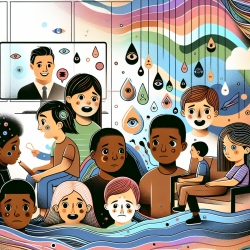Introduction
In the realm of speech-language pathology, much like in the field of dentistry, the integration of diverse professionals can lead to enriched outcomes for clients. A recent study titled Foreign-Trained Dentists in the United States: Challenges and Opportunities provides valuable insights that can be adapted to improve practices in speech therapy. By examining the challenges and opportunities faced by foreign-trained dentists, speech therapists can glean strategies to enhance their services, particularly in diverse and underserved communities.
Key Findings from the Research
The study highlights several challenges faced by foreign-trained dentists in the U.S., including stringent admission processes, high tuition costs, immigration barriers, and cultural differences. Despite these challenges, the inclusion of foreign-trained dentists offers significant advantages, such as increased diversity, expanded access to care, and enhanced expertise.
These findings underscore the importance of diversity and inclusion in professional fields. For speech therapists, this translates into the need for diverse perspectives and experiences to better serve a varied client base.
Implementing Lessons in Speech Therapy
Speech therapists can draw parallels from the dental field to improve their practice. Here are some actionable strategies:
- Embrace Diversity: Actively seek to include therapists from diverse backgrounds. This can help in understanding and addressing the unique needs of clients from different cultural and linguistic backgrounds.
- Overcome Barriers: Recognize and address barriers that may prevent diverse candidates from entering the field. This includes advocating for policies that reduce financial and educational hurdles.
- Focus on Underserved Communities: Similar to the dental field, there is a need to provide services to underserved populations. Speech therapists can focus on outreach and tailored interventions for these communities.
Encouraging Further Research
The study on foreign-trained dentists encourages further exploration into how diverse professionals can impact their fields. Speech therapists are encouraged to conduct research on the effects of diversity within their practice, particularly how it influences client outcomes and satisfaction.
Conclusion
By adopting lessons from the challenges and opportunities faced by foreign-trained dentists, speech therapists can enhance their practice and outcomes. Emphasizing diversity, reducing barriers, and focusing on underserved communities are key strategies for improvement. For those interested in delving deeper into the original research, please follow this link: Foreign-Trained Dentists in the United States: Challenges and Opportunities.










